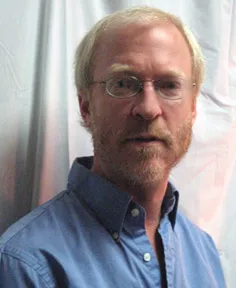Philosopher Richard Eldridge on Political Hope

Oxford Press Blog: History, philosophy, and political hope
Politics in general is all about how to develop, sustain, and revise institutions, practices, and policies that bind individuals together productively and that point toward more fulfilling individual and joint futures for them. Debates about how best to do this are natural. Should the U.S. become yet more aggressively libertarian-individualist, or should a substantial social compact that enforces terms of fair cooperation via significant redistribution be instituted? Should the U.K. embrace European social democratic values and relations, or should it stand on its Anglo-Saxon distinctiveness?
These important questions are increasingly addressed, however, in the absence of significant, articulate knowledge of political ideals that historically have informed political life. As a result, debates about these questions are typically shriller and less productive than they could and should be. Various forms of nativism and populism supplant more considered deliberations, for good enough reasons, as individuals and subpopulations come to be and to feel disenfranchised from political and economic business-as-usual. In a May New York Times opinion piece, the economic historian Michael Lind reports that “A 2016 Presidential Election Survey by the RAND Corporation revealed that the single factor that best predicted voter support for Donald Trump among likely Republican voters was not income, education, race, gender or attitudes toward Muslim or illegal immigration, but agreement with the statement ‘people like me don’t have any say.’” Globalization and the degradations of the powerful are increasing political and economic disenfranchisement throughout the industrialized world. Disenchantment then produces anger, for good reasons.
...
One way to begin to reverse these developments and to enrich political debates is to consider detailed accounts of political-ideals-as-lived that have been articulated and argued for by major philosophers who are sensitive to the values all at once of individualism, responsibility, political equality, economic security, rich joint meaningful life, and ongoing critical thought, as commitments to these values have been lived out against the backgrounds of religious and philosophical traditions. Immanuel Kant and Walter Benjamin are two thinkers of exactly this kind. Each of them eloquently asked and answered the question, “What may we hope for?,” and each of them answered it by taking seriously both political ideals and available historical possibilities that might be seized.
Richard Eldridge is the Charles and Harriett Cox McDowell Professor of Philosophy at Swarthmore. He is the author of five books and over 100 articles in aesthetics, philosophy of language, philosophy of literature, and Romanticism and Idealism. In his new book, Images of History: Kant, Benjamin, Freedom, and the Human Subject, he argues that effective moral-political philosophy and historical understanding require each other. He has edited four volumes, including The Oxford Handbook of Philosophy and Literature and he is the series editor of Oxford Studies in Philosophy and Literature.



